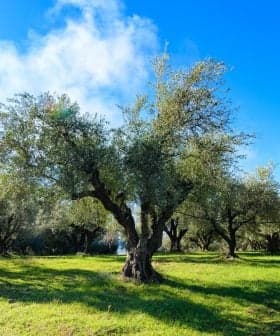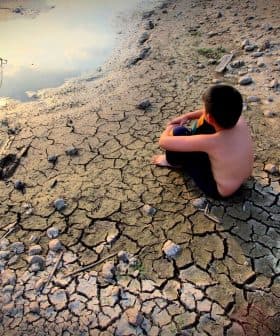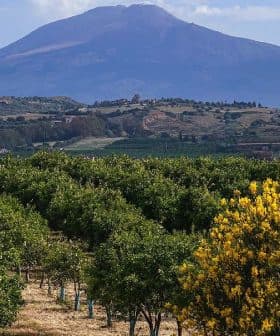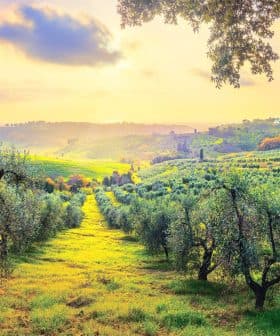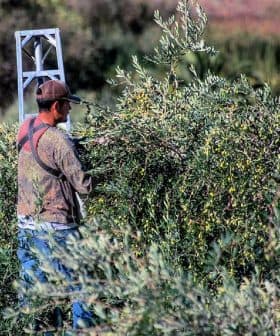How the Climate Makes and Breaks One Award-Winning Producer’s Harvest
The family behind Turinela Farm believes the climate in Istria is perfect for producing award-winning olive oil. However, extreme weather is their biggest obstacle.
 Turinela Farm
Turinela Farm The Volarević family at Turinela Farm in Croatia produces award-winning extra virgin olive oil from a blend of local olive varieties, with their Buza olives being a main contributor. Despite facing challenges due to weather, they have transitioned to organic practices and have been successful in local and international competitions, crediting their success to learning from and collaborating with local farmers in the area.
Dotting the gentle slopes of the green hills surrounding a small Croatian village close to the Adriatic Sea, the producers behind Turinela Farm craft their award-winning extra virgin olive oil.
The olive trees of the Volarević family are interspersed with cork oaks, aromatic laurels, rosemary and lavender just outside of Mali Turini, in the central-western part of the Istrian peninsula.
We studied the climate and analyzed the soil to see how best we could manage the land.
From their trees, Aurora, Marijo, Helena and Filip Volarević craft a blend that earned a Gold Award at the last two editions of the NYIOOC World Olive Oil Competition.
The producers told Olive Oil Times that the climate in this northern olive growing region is both a valuable ally and a significant obstacle in producing high-quality olive oil.
See Also:Producer ProfilesSituated on the 45th parallel, Mali Turini is among the northernmost olive-growing regions in the world. The farmers believe the temperatures are precisely what a healthy and fruitful olive tree needs.
“We are a relatively new farm, but you can find so many people throughout the country who have revived old farms or discovered they had olive trees on their land and decided to start growing olives again,” Helena Volarević said. “Suddenly, they found out they could produce high-quality olive oil.”
Turinela’s Premium Selection is a blend of the local olive Buza variety with Istrian Bjelica, Pendolino, Leccino, Maurino and Lastovka olives. Since the Volarević family has its origins in Dalmatia, they also planted some native Obliza trees on the farm.
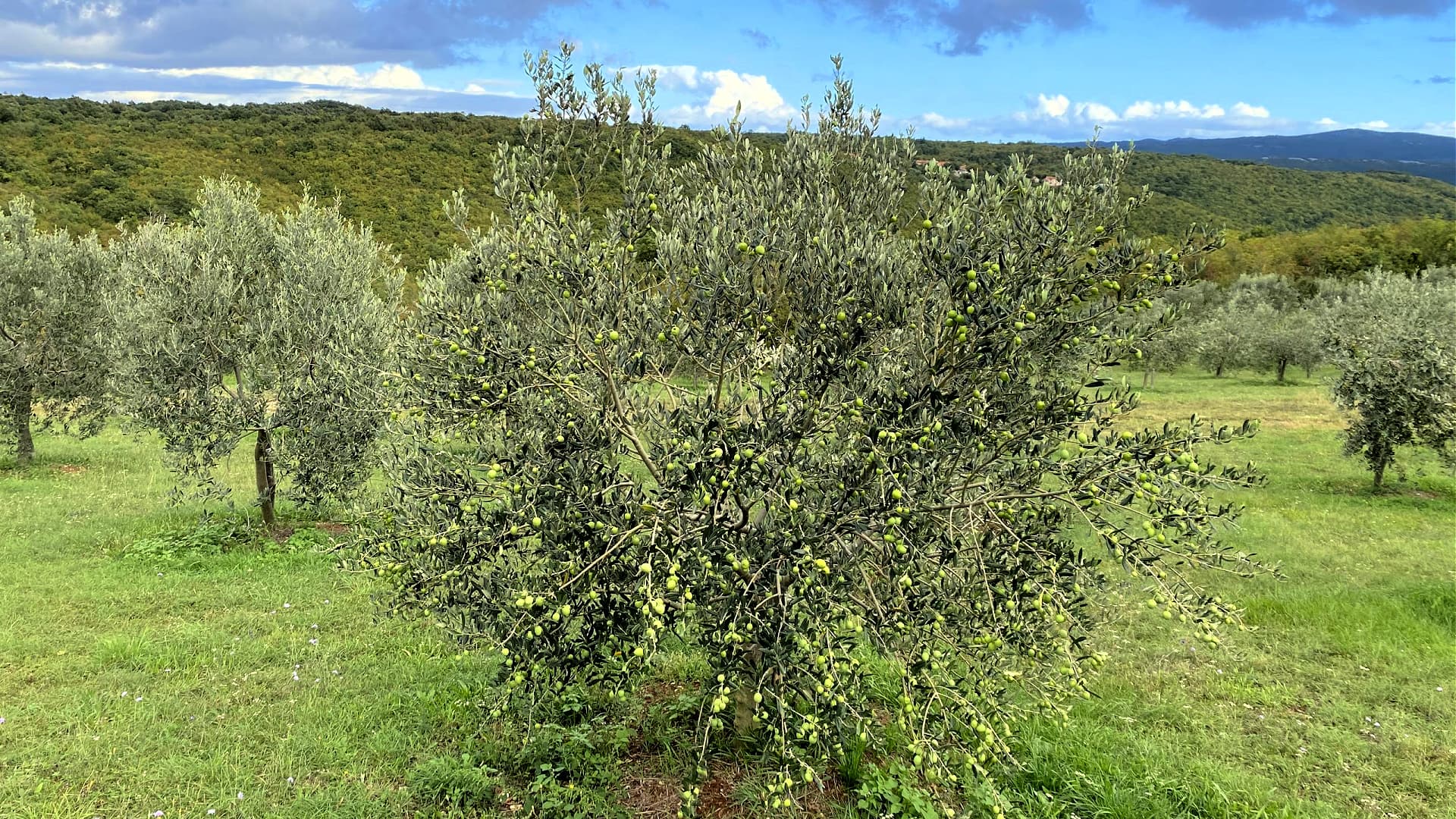
Turinela Farm
Buza olives are mainly grown in southern Istria and neighboring Slovenia. Research is underway to establish its common genetic heritage with other olive trees found in the region.
“In its early harvest, this variety [Buza olives] produces a lively green extra virgin olive oil with a full-bodied taste, a long fruity aftertaste,” Marijo Volarević said. “It has characteristic olive, artichoke and apple scents with a balanced piquancy and bitterness.”
While the Buza olives are the main contributor to their blend, Volarević said all the olive trees play an important role in establishing the oil’s unique flavor.
“Growing together, they begin blending during the blooming and pollination phases,” he said.
When the harvest arrives, all the olives are picked on the same day and transformed into a single batch.
“This ideal combination of varieties and grove position gives the oil a superior bouquet-full, rich aroma with a spectrum of scents with just the right bitterness and piquant,” Volarević said.
The family began producing olive oil in 2009, reviving an uncultivated area that belonged to Aurora Volarević’s family.
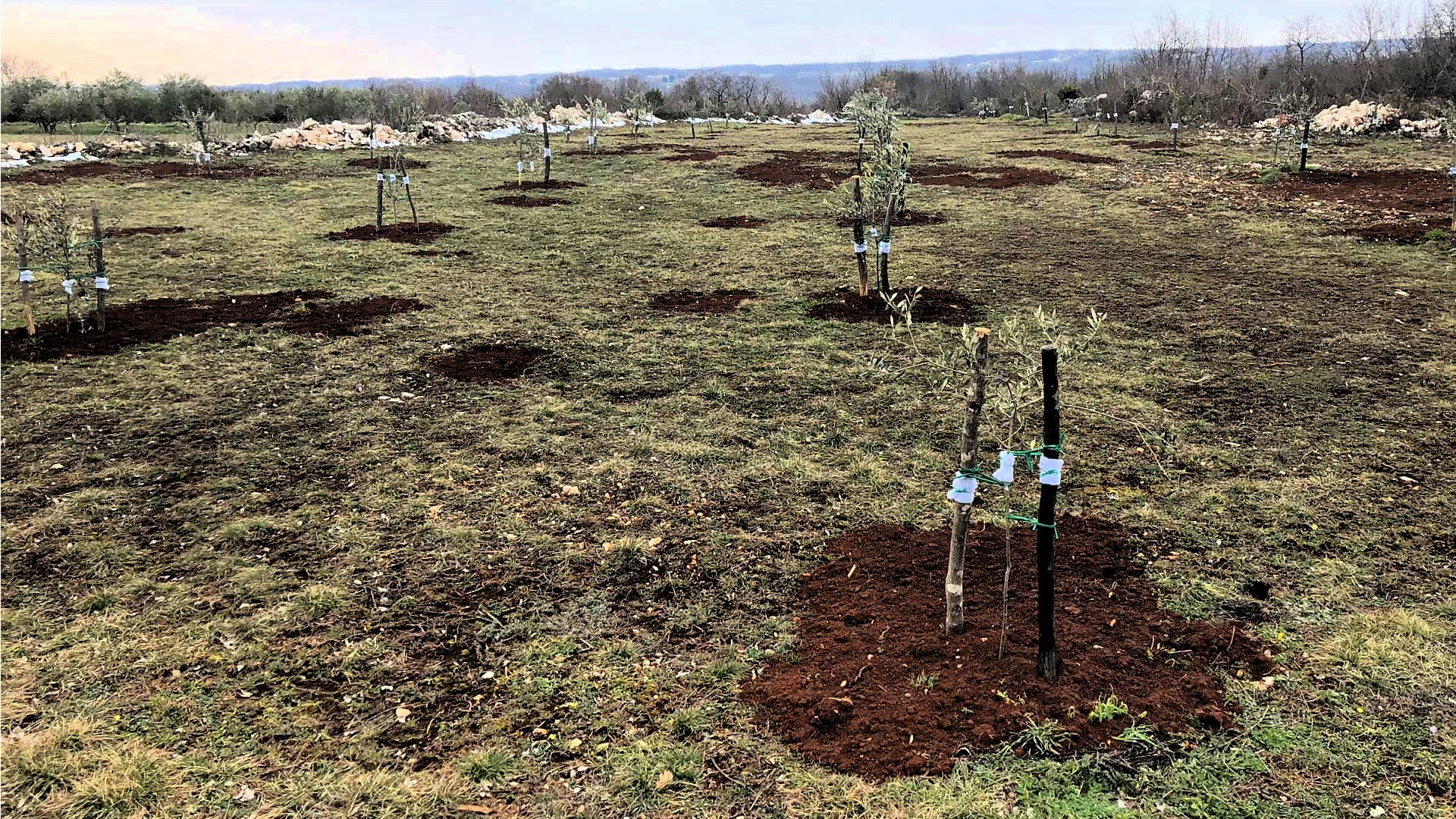
Turinela Farm
“We studied the climate and analyzed the soil to see how best we could manage the land,” Volarević, a biotechnology scientist, told Olive Oil Times. “The area is a little more than 20,000 square meters, and we planted olive trees in three different areas which are quite close to each other. Altogether there are 500 trees.”
Since reviving land, the Volarević family has started transitioning to solely organic practices.
“Four years ago, we planted a few hundred hazelnut trees whose cultivation is entirely organic. We also use completely organic fertilizer for our olive trees,” Volarević said. “Our challenge here is that the nearby olive farms are not organic.”
Marijo Volarević added that the producers’ only non-organic interventions are to prevent damage from the olive fruit fly.
The area is highly suitable for quality olive oil production as local millers are equipped with state-of-the-art mills.
“Our friend here with his olive mill allows us to harvest the olives, and within a few hours from harvest, we cold-press them,” Volarević said.
The main challenge for the family is the weather. While the climate is traditionally ideal for olive growing, unexpected events increasingly complicate harvesting and transformation.
“This year, it happened with the sudden frost in the wrong moment,” Helena Volarević said. “In the winter, the typical winter freeze would have been useful to help kill the pests, but it does not freeze.”
“In summer, you get the drought. So we are constantly facing weather which is working against us,” she added. “This means that we have to make sure that we are doing all we can to allow the olive trees to thrive.”
According to Marijo Volarević, the presence of multiple varieties and the proper pruning has a beneficial effect in curtailing the natural alternate bearing cycle of the olive tree, “but it is weather that really decides how it will go.”
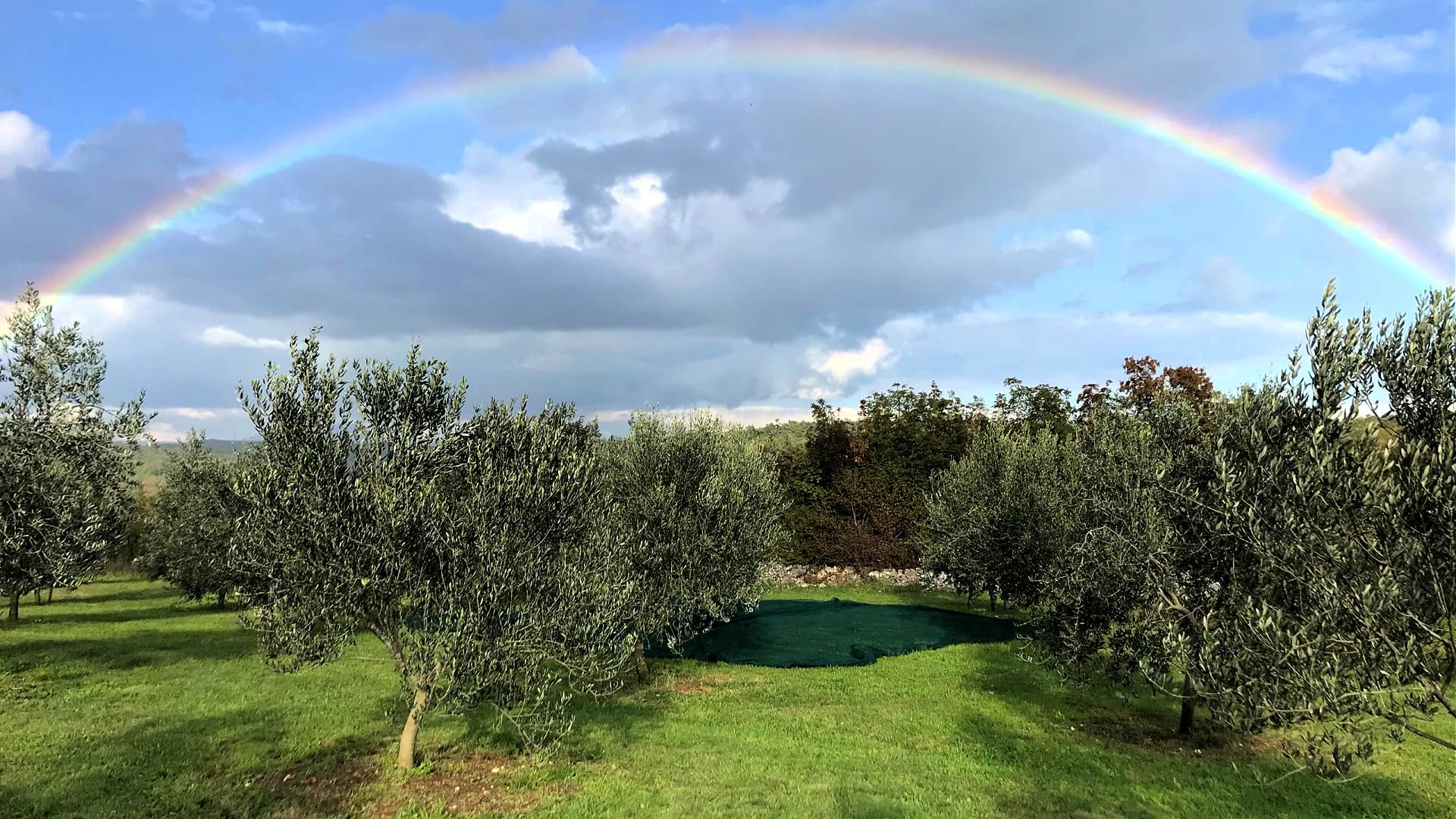
Turinela Farm
Aurora Volarević added that Istrian farmers notice the growing impacts of climate change.
“We see that happening. For example, if the blooming happens too close to the start of hot weather, it can really be a problem for the olives,” Volarević said.
“And this happened last year to some local growers,” she added. “Since the snow came late, the trees needed at least two weeks afterwards to begin growing again. That made them bloom at least two weeks later than expected, too close to the warmest months of the year.”
Each year, the Volarević family has continued to improve their olive farming and production techniques, which eventually gave them the confidence to enter a local quality competition where they earned a gold award.
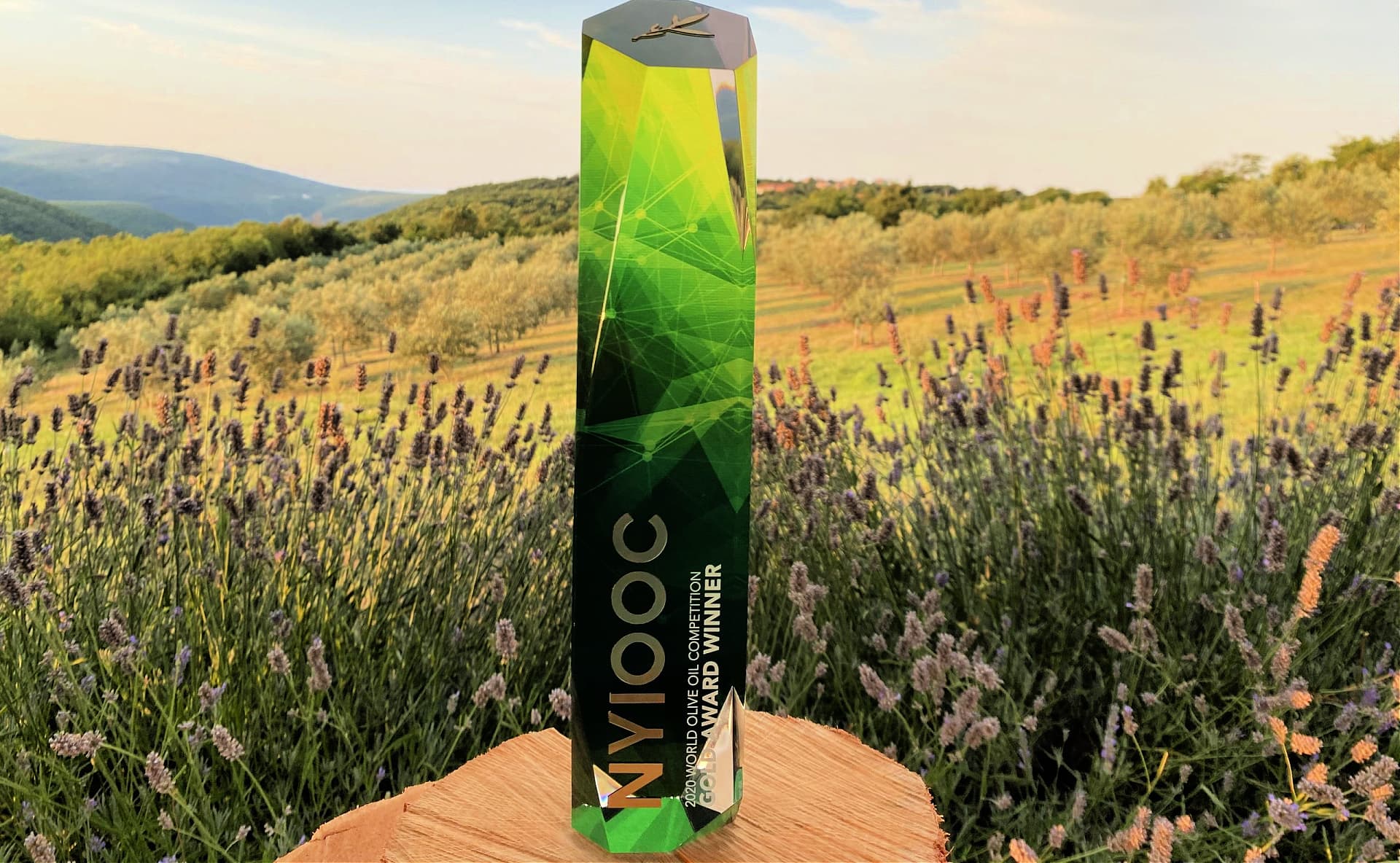
Turinela Farm
Three years later, Turinela earned its first award at the NYIOOC World Olive Oil Competition, the world’s largest olive oil quality competition.
“Since our first win in the local competition, we were saying that a day would have come that we could win an award in New York,” Aurora Volarević said.
The family explained how they would not have won these awards without learning from local farmers, whose experience proved essential in understanding how to face the many challenges of olive farming.
“The community here is very relevant for us,” Helena Volarević said. “We are in a small area, where people exchange views. We support each other.”
“With the other olive oil producers, we exchange views on pruning techniques and best practices, but also work together and try to work to show the world how local extra virgin olive oil can be a truly high-quality product,” Marijo Volarević concluded
Share this article



